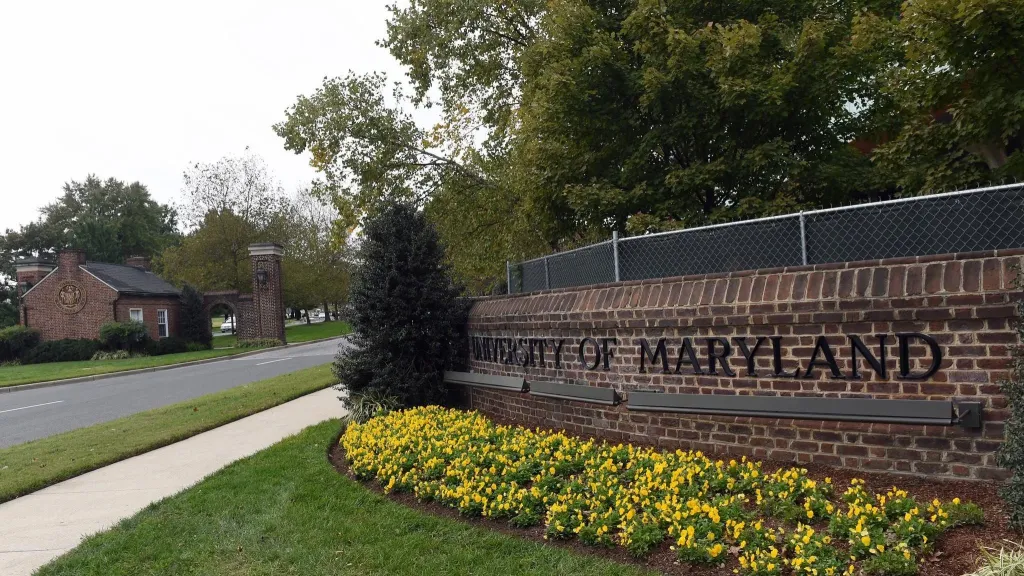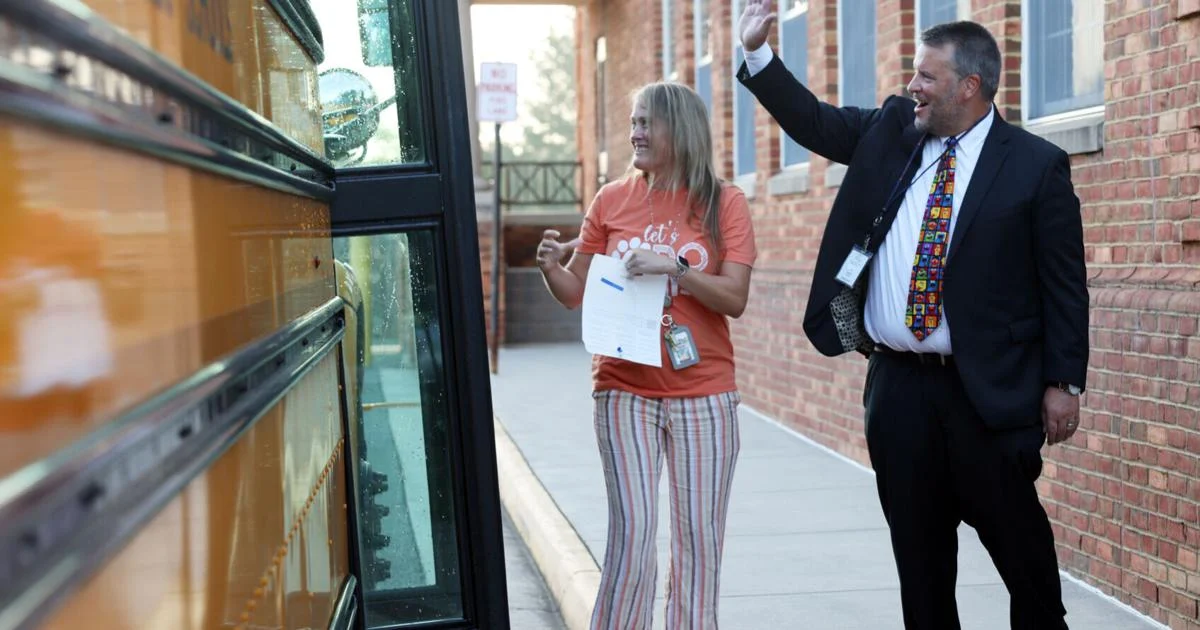
Maryland higher education leaders say the Trump administration’s funding cuts are having a massive impact, noting millions of canceled research grants and possible missed educational opportunities for low-income and international students.
“Federal actions are having a devastating impact on our work,” said Jay Perman, chancellor of the University System of Maryland, addressing lawmakers during a House appropriations committee briefing Monday in Annapolis.
Perman said the federal government has cut around $120 million of the $1 billion in research funds it provides to the university system. The system expended a total of $1.6 billion in research and sponsored programs last year.
“When we’ve gotten a reason for the termination — and we don’t always get one — it’s most often that the grant included objectives or language related to DEI [Diversity, Equity and Inclusion],” Perman said.
Perman detailed the following grant cancellations:
University of Maryland, Baltimore: 37 canceled grants worth $48 million
University of Maryland, College Park: 60 canceled grants worth $30 million
University of Maryland, Baltimore County: 30 canceled grants worth $22 million
Towson University and University of Maryland Eastern Shore: “losses in the tens of millions of dollars in current and future year obligations”
Perman added that an even bigger threat than terminated grants is the “funding slowdown” from federal agencies, especially from the National Institutes of Health, which currently accounts for 80% of federal research dollars at UMB. New award dollars at UMB are down 38% compared to the same time last year, and “non-competing continuations” are down 54%.
Perman added that the loss of NIH research dollars is “a big blow to Maryland,” as it supports around 20,000 jobs in the state, totaling $5.3 billion in economic activity.
“It’s not just dollars on the line,” Perman said. “It’s a loss for new cures, new treatments in areas critical to human health.”
Perman added that the cuts will impact grant-funded staff positions and graduate students.
“Many grad students will not be able to continue, and we will do real damage to our pipeline of next generation researchers,” he said.
He also said that over the past two fiscal years, the university system lost $233 million in state funds.
“With both federal and state funding under threat, there’s nowhere we can turn to, to make up the difference, not without compromising our No. 1 promise: affordability. We can’t simply raise tuition,” he said. “Most of our universities would lose the low- and moderate-income students, the first- generation students that we’ve worked so hard to attract.”
The Trump administration has said that it’s looking to cut waste, fraud and abuse in government spending. That includes cutting what it considers to be “wasteful DEI programs and preferencing.” The administration also has said it is setting out to cut “wasteful” and “frivolous grants,” ensuring that “each grant dollar benefits Americans instead of lining grantees’ pocketbooks or furthering causes that damage America.”
Impacts on students and student aid
At Morgan State University, 90% of students qualify for financial aid, according to the university’s president, David Wilson. Of those, 60% qualify for Pell Grants, and 30% of those qualify for the “maximum” Pell Grant.
“What that means is that, vernacularly speaking, their parents can’t put their hands in their pockets and pull out two Lincoln pennies to rub together to send to Morgan to pay their tuition,” Wilson told the lawmakers.
Perman said although Trump’s One Big Beautiful Bill Act, passed in July, largely preserved Pell eligibility and undergraduate aid, “we still have students who will suffer under changes to federal loans.”
Specifically, there will be impacts on Grad PLUS loans for graduate and professional students. A total of 6,000 students across the university system borrowed under the program last year, Perman said. Effective July 1, 2026, Grad PLUS loans will no longer be available for new students and borrowing caps for current borrowers will be lower.
He added that grant terminations would harm the Minority Serving Institution designated community colleges that send students to the university system. In addition, a funding freeze on TRIO grants would affect academic support services for low-income students, first-generation students and students with disabilities.
Recent federal policy changes also have created uncertainty for international students. Perman said a dozen students’ visas were revoked in the spring and then later reinstated. He also noted “untenable” wait times for visa appointments and proposals to limit the amount of time that a student can stay in the United States.
The university system enrolls around 12,000 international students and expects 5% fewer this fall, and a “dramatic” drop next year.
“If they leave the United States for countries more welcoming of international talent, their absence would materially affect our scholarship and operations,” Perman said.
At Bowie State University, funding cuts are impacting the school’s Ujima Counseling program, which was training Black men to serve in K-12th grade counseling positions, according to the university’s president, Aminta Breaux.
“This loss is especially concerning, given that Black male educators represent only about 1% of the nation’s teachers,” she told the lawmakers.
Budget surplus
There was also some positive news at the briefing: The state closed its fiscal year with general fund revenues of $521 million, which was 2.1% higher than expected.
The surplus came from overperformance on personal income tax revenues, driven largely by capital gains and other non-wage-withholding income, as well as “miscellaneous revenue,” according to David Romans, fiscal and policy coordinator for the General Assembly’s legislative services department.
A portion of the surplus will be allocated to the state’s Rainy Day Fund, which now stands at a balance of $2.4 billion, Romans said.
Despite having a “robust” Rainy Day Fund, there still will be be fiscal challenges ahead resulting from cuts made through the federal Department of Government Efficiency and the One Big Beautiful Bill, said House Appropriations Committee Chair Ben Barnes, a Democrat representing Anne Arundel and Prince George’s counties.
“We haven’t felt the ramifications yet … of DOGE. We haven’t yet felt, in our budget, the ramifications of this big bill — I call it the big old, dumb bill,” he said. “While we celebrate good news as to the state having balanced its budget and ending with a surplus, we know that there’s turbulence ahead.”
Have a news tip? Contact Brooke Conrad at bconrad@baltsun.com or 443-682-2356



